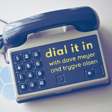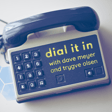
S3 Ep33: Surviving the Unexpected – Nicole's Heart Attack Story
In this episode of Dial It In, the hosts discuss the unexpected experience of Nicole, who recently had a heart attack despite initially mistaking it for muscle strain. She recounts the events leading up to her heart attack, her symptoms, the emergency care she received, and how her husband convinced her to seek immediate medical attention. The episode also features Tim Smith, founder of Heart Cert CPR, who explains the differences between heart attacks and cardiac arrests, the importance of recognizing atypical symptoms in women, and steps one should take if experiencing or witnessing a potential heart attack. Tim emphasizes the value of training and preparedness in the workplace and at home. The conversation underscores the critical nature of knowing one's body, the significance of timely intervention, and the importance of workplace support and training in handling cardiac events.
Connect with Guests:
HeartCertCPR.com
Heart.org
GoRedForWomen
WomenHeart
WomenHeartHealth
Heart Health for Women
…
Dial It In Podcast is where we gather our favorite people together to share their advice on how to drive revenue, through storytelling and without the boring sales jargon. Our primary focus is marketing and sales for manufacturing and B2B service businesses, but we’ll cover topics across the entire spectrum of business. This isn’t a deep, naval-gazing show… we like to have lively chats that are fun, and full of useful insights. Brought to you by BizzyWeb.
Links:
Website: dialitinpodcast.com
BizzyWeb site: bizzyweb.com
Connect with Dave Meyer
Connect with Trygve Olsen

